How Long Does a Water Heater Take to Heat Up? Quick Guide & Tips
Unravel the mystery of hot water heater efficiency with our comprehensive guide. While HVAC systems primarily keep your home comfortable, water heating is also essential, and regular maintenance can improve both systems’ energy efficiency. In this blog, we’ll discuss water heating times for various types, the importance of regular maintenance, and how Total Comfort Cooling & Heating Inc. can help maintain home comfort systems effectively.
Key Takeaways
- Heating times for water heaters differ: gas water heaters typically heat in 30-40 minutes, electric water heaters take 1-2 hours, and tankless water heaters provide hot water almost instantly.
- Factors like water heater size, desired temperature, and regular maintenance, including flushing tanks and checking heating elements, influence heating efficiency.
- Common issues such as sediment buildup, faulty heating elements, or dirty gas burners can extend heating times, requiring professional inspection to maintain optimal performance.
Overview
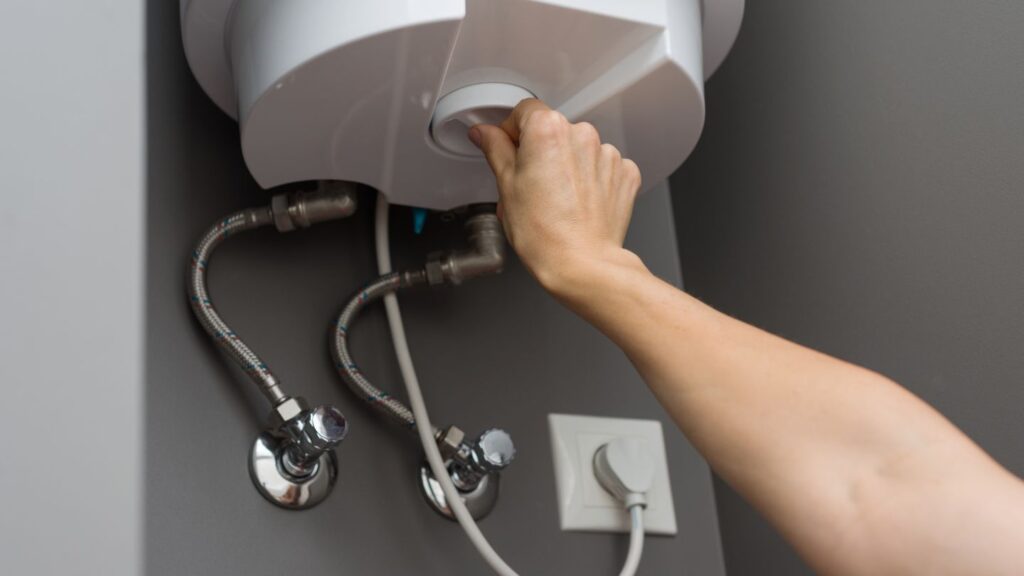
Water heaters, like home heating and cooling systems, require maintenance to work efficiently. The impact of cold water on water heater efficiency is essential, as it affects recovery time, first-hour ratings, and temperature consistency. Here, we’ll explore different types of water heaters, how they operate, and what factors influence heating times, whether you have an electric or gas heater. This can guide homeowners in managing their systems for optimized comfort and energy savings.
Electric Hot Water Tanks
Electric hot water tanks typically take 1 to 2 hours to heat fully. These systems, often used alongside HVAC units, rely on heating elements that may need regular checks to maintain performance. Large electric tanks may require additional time to reheat if drained and refilled, so periodic thermostat checks and system assessments are recommended. Heat pump water heaters, which work efficiently by transferring heat, may also be an option for improved efficiency.
Gas Water Heaters
Known for their faster heating capabilities, gas water heaters generally heat up in 30-40 minutes. Homeowners with high hot water needs may prefer gas water heaters for their efficiency, and these can complement HVAC systems by balancing home energy use.
Tankless Water Heaters
Tankless water heaters heat water on demand, making them efficient and reducing standby energy losses. In contrast, tank water heaters store a large volume of hot water, which can lead to energy losses but provide a steady supply of hot water. While they usually deliver instant hot water, regular checks of heating elements and the energy supply are recommended for peak performance.
Total Comfort Cooling & Heating Inc. can assist with routine checks to support efficient home heating solutions.
Factors Influencing Heating Time
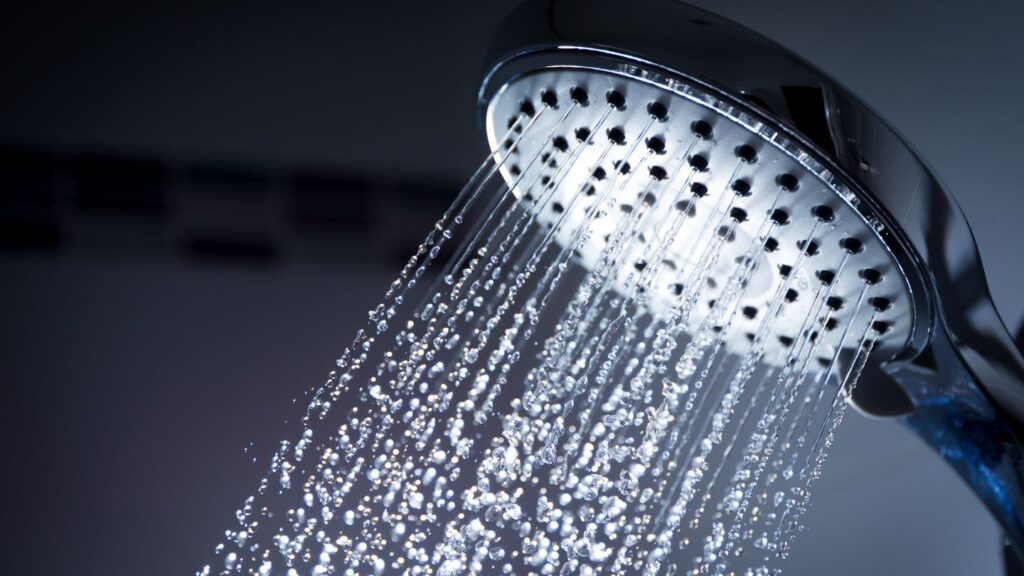
Heating times can vary based on several factors. An electric hot water heater may take around an hour or more to fully heat its tank, while a gas water heater usually takes 30-40 minutes. The efficiency of your water heater, much like your HVAC system, depends on regular maintenance.
Water Heater Size
The size of hot water heaters affects heating time—larger tanks require more time, whereas smaller ones heat quickly. If your home has a large HVAC setup or high hot water demand, consult Total Comfort Cooling & Heating Inc. about options to maximize system efficiency.
First-Hour Rating
A water heater’s first-hour rating (FHR) measures how much hot water is available during peak demand. A tankless water heater, in particular, can provide hot water almost instantly without the need for a reservoir, making it highly efficient during peak demand. Ensuring both your water heater and HVAC systems operate effectively during high-demand periods can improve overall comfort and efficiency in your home.
Temperature Rise
The difference between incoming water temperature and thermostat settings (temperature rise) influences heating time. Adjusting thermostats thoughtfully can help balance your home’s hot water supply, ensuring both your HVAC and water heater systems meet your needs efficiently.
Common Issues Affecting Heating Time
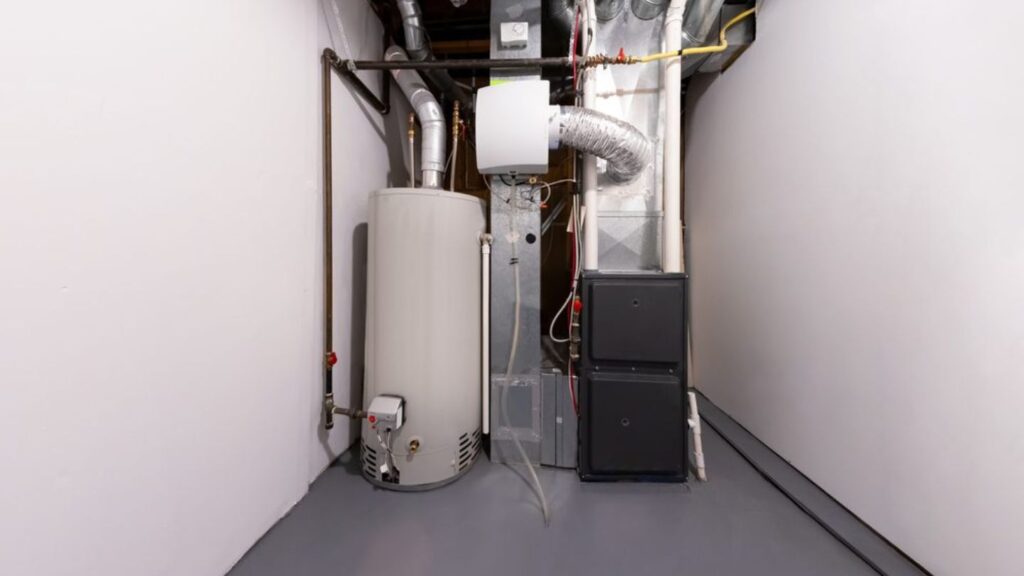
Heating times may extend due to various issues with your hot water heater, including those specific to a gas water heater, such as burner maintenance and recovery times. Total Comfort Cooling & Heating Inc. can assist with regular inspections to keep your water heating and HVAC systems running efficiently, resolving issues that may arise.
Sediment Buildup
Sediment accumulation can reduce efficiency by insulating the heating element. Regular flushing prevents buildup and optimizes heating. Flushing your water heater every six months is a small step that can lead to savings and a more efficient HVAC setup.
Faulty Heating Element
Malfunctioning heating elements in electric water heaters can prolong heating times. Checking and maintaining these components ensures both your HVAC and water heating systems operate optimally.
Dirty Gas Burner
For a gas heater, a clean burner is essential. Dirt buildup can lead to inefficiency, increasing heating times. Regular maintenance of both gas burners and HVAC components keeps your systems efficient and your home comfortable.
Improving Water Heater Efficiency

Enhancing water heater efficiency, especially for an electric hot water heater, can improve heat-up times and reduce energy costs, much like keeping an HVAC system well-maintained. Regular upkeep, high-efficiency models, and insulation all contribute to better performance.
Regular Maintenance
Annual maintenance helps extend the life of a water heater and the HVAC system. By flushing tanks and inspecting components, Total Comfort Cooling & Heating Inc. can help you maintain peak performance across both systems.
Insulating Water Pipes
Proper insulation of water pipes enhances the delivery of hot water and supports efficient HVAC system operation. Insulated pipes ensure that hot water reaches faucets more quickly and with minimal heat loss, thereby improving energy efficiency.
Upgrading to a High-Efficiency Model
Switching to a high-efficiency water heater reduces heating times and energy bills, much like an energy-efficient HVAC system. Tankless water heaters provide instant hot water, which can be beneficial for homes with high hot water demand.
Read more: Top 5 Types of Water Heaters You Should Know
When to Call a Professional Plumber
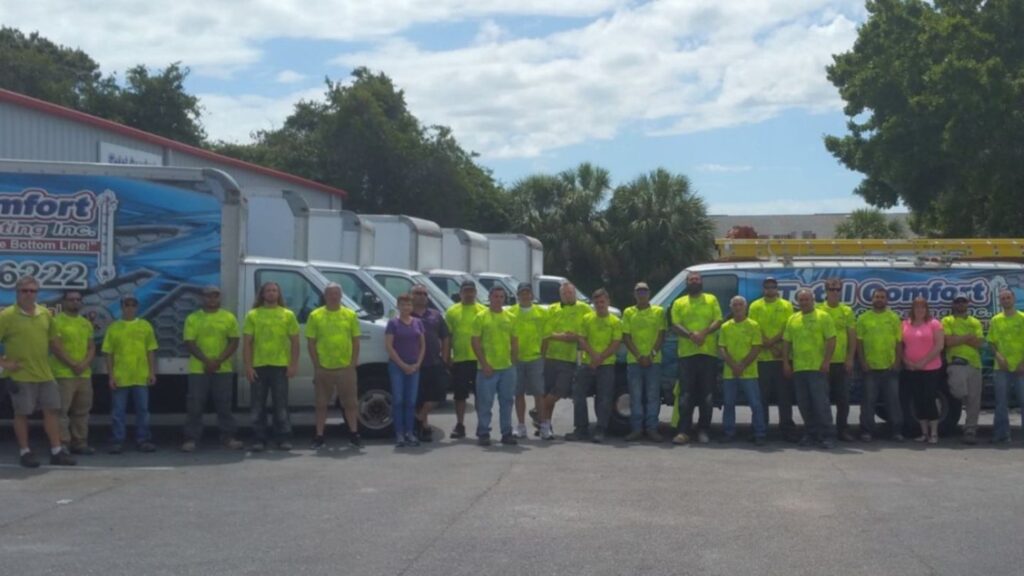
Sometimes, professional support is essential. Total Comfort Cooling & Heating Inc. can help with regular maintenance and assessments to keep both your water heating and HVAC systems performing optimally.
Persistent Slow Heating
If hot water recovery is consistently slow, a professional evaluation may be needed. Contact a reliable plumber for inspections and timely repairs, ensuring your entire home heating system operates efficiently.
Unusual Noises or Leaks
Strange sounds or leaks often signal a problem. If left unchecked, these issues can strain both your water heating and HVAC systems. Professional inspection prevents further damage, helping keep your home’s comfort systems in good condition.
Summary
Comprehending the heating times of water heaters and the factors that affect them empowers homeowners to make informed decisions regarding their hot water requirements. Implementing regular maintenance, ensuring proper insulation, and opting for energy-efficient upgrades can significantly enhance your home’s comfort.
If you’re considering a Tankless Water Heater in Port Charlotte, FL, Total Comfort Cooling & Heating Inc. offers the expertise you need to maintain your home’s HVAC and hot water systems efficiently. Our HVAC team in Port Charlotte is dedicated to providing exceptional service to ensure your systems are running smoothly. Reach out to us now to schedule a consultation and take the first step towards improved energy efficiency and reliable hot water supply.
Frequently Asked Questions
How long does it take for an electric water heater to heat up?
Electric water heaters typically take 1 to 2 hours to heat up, depending on tank size and heating element power.
What are common issues that affect water heater efficiency?
Sediment buildup, faulty heating elements, and dirty burners can impact water heater efficiency. Regular maintenance supports both hot water and HVAC system performance.
How can I improve my water heater’s efficiency?
Focus on regular maintenance, insulate pipes, and consider a high-efficiency model. These steps benefit both hot water and HVAC efficiency, keeping your home comfortable.
READY FOR YOUR NEXT HEATING OR COOLING PROJECT?
Contact us to get a quote and see why our customer service is recognized as the best in the industry.
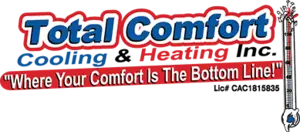






 Special Offer: 12 Months - No Interest, No Payments!
Special Offer: 12 Months - No Interest, No Payments!